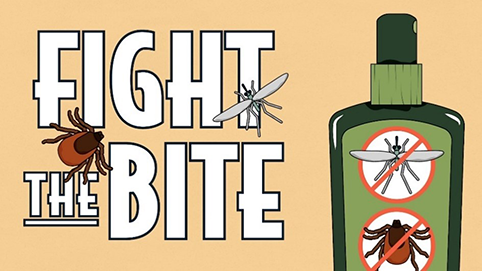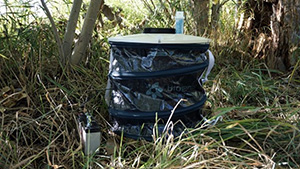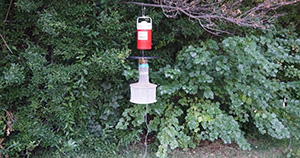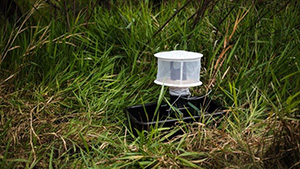fight-the-bite-482.png

281-238-3001

FBCHHS-Confirms-First-Case-of-WNV-for-2025-EN--ES.pdf
UPDATED SPRAYING ACTIVITY
https://fbcgis.maps.arcgis.com/apps/dashboards/12254e55d7ac4eb58ff15f577b732d9d
Report Mosquito Activity |
Our initiative at Fort Bend County Environmental Health Mosquito Control is to safeguard the health of Fort Bend County residents by preventing mosquito-borne diseases and controlling mosquito vector populations through environmentally responsible practices. Our approach is grounded in scientifically-based strategies and systematically planned management techniques aimed at reducing vector abundance efficiently. This methodology is known as Integrated Mosquito Management (IMM). To learn more about IMM click here.
The Integrated Mosquito Management (IMM) program, dedicated to safeguarding the health and safety of Fort Bend County Residents through:
FBC EH currently traps and tests mosquitoes for West Nile Virus, and sends additional mosquitoes to the Texas Department of State Health Services Arbovirus Laboratory for additional testing. The county uses three trap types that are placed at over 90 locations across the county.



The County places larvicide in various areas of standing water to help reduce mosquitoes before they become adults. You can help in this quest by dumping any standing water, cleaning out gutters, and reducing areas where mosquitoes may grow!
The county uses products with the active ingredients Methoprene, Spinosad or Bti.
The county sprays for mosquitoes when we detect positive mosquito pools. A pool is a group of mosquitoes tested for a mosquito-borne virus. The county does not spray on request. All treatments performed by the county are based on the data from our surveillance efforts and disease related activities. Our surveillance is conducted weekly across the entire county and the mosquitoes collected from these efforts are counted, identified, and tested. The County utilizes mosquito control products that are registered and approved by the Environmental Protection Agency (EPA). To learn more about the regulation of pesticides with public health uses click here. The County currently uses Fyfanon ULV and Evergreen Ground 5-25.
For More information on truck-based spraying visit https://www.cdc.gov/mosquitoes/mosquito-control/truck-spraying.html
In Texas, mosquito bites pose a significant risk beyond mere hindrance. They are potential carriers of diseases that threaten you and your family's health. Mosquitoes contract these diseases by feeding on infected animals, birds, or humans. Once infected, mosquitoes can pass on the infection to individuals through their bites, prolonging the spread of infection in our community.
The best way to fight the bite, FBC EH recommends the 4-Ds of mosquito safety:
4-D's poster [PDF]
For larger bodies of water, FBC EH recommends:
Where mosquitoes grow around your home [PDF]
Use the EPA's Right Insect Repellent search tool to help you choose the repellent product that is right for you. You can specify:
https://www.epa.gov/insect-repellents/find-repellent-right-you
By using an integrated vector management strategy, we aim to protect your hives and other pollinators through the following strategies:
Steps you can take to reduce exposure to your hives:
If you would like to request your house, or areas you keep hives to not be sprayed, email EH-MosquitoControl@fbctx.gov with your address/the address you do not wish to be treated, with the subject line: Do Not Spray – Bees.
If you do not wish to have your property treated for another reason, email EH-MosquitoControl@fbctx.gov with your address/the address you do not wish to be treated, with the subject line: Do Not Spray – Other.
For more information on Mosquito Control and pollinator protections, visit https://www.mosquito.org/pollinator-protections/
Residents are encouraged to use the provided resources to learn more and take preventative measures to protect themselves and loved ones.
West Nile Virus Information from the CDC
Zika Virus Information from the CDC
Do you spray inside City limits within Fort Bend County?
Fort Bend County Mosquito Control only sprays inside city limits if the city does not have a means to spray and only if it's in response to a virus detection or a human case that is of concern.
Do we have West Nile Virus in Fort Bend County?
Yes, WNV has been found in Fort Bend County since 2001 and is primarily transmitted through the bite of the southern house mosquito, Culex quinquefasciatus.
What is the risk of someone becoming infected with West Nile?
WNV poses a low risk. Even in regions where the virus is present, only approximately 1% of mosquitoes carry it. Around 80% of WNV cases are asymptomatic, meaning a person never gets sick. About 20% of those infected may develop West Nile fever, characterized by flu-like symptoms. Less than 1% of individuals bitten and infected will develop West Nile neuroinvasive disease, though those who are immunocompromised or over 50 years old are at higher risk for this severe form.
Can dogs, cats, and other pets get the West Nile virus?
Yes, pets can get WNV. Horses are very susceptible but can be vaccinated. Cats and dogs rarely, if ever, get sick. Most infections have been identified in birds. Birds can become very ill from the virus, so it is recommended that pet birds be kept indoors, especially during dawn and dusk.
Can pets be outside during spraying?
When applied according to label instructions, Environmental Protection Agency (EPA)-registered insecticides do not pose a risk to human health. Truck spraying poses minimal risk to pets, animals, and the environment. If people prefer to stay inside when spraying takes place they can, but it is not necessary
How long does it take to get sick if bitten by an infected mosquito?
The typical incubation period ranges from 2 to 6 days but can extend to 14 days. Individuals with specific medical conditions affecting the immune system may experience a prolonged incubation period. If you think you have been exposed, please consult your primary care physician.
Where are all the mosquitoes coming from?
Mosquitoes need water to grow. Any amount of standing water could allow mosquitoes to grow. To help reduce this, dump and remove any containers that can hold standing water.
What can I do about biting gnats?
Biting gnats are a nuisance insect that, primarily, is active during the day and is not a disease carrier. Therefore, adulticide spraying is not performed. Residents are advised to practice the Four Ds to aid in preventing exposure: Dusk & Dawn, Drain, Dress, and Defend. Products containing Bti for mosquitoes can also be effective against many types of gnats.
How can I request my property be sprayed?
The primary objective of mosquito control is to protect public health by targeting areas with high mosquito vector populations that pose a risk for transmitting diseases. Spraying is generally conducted based on epidemiological data and the presence of disease, rather than individual requests.
Can Mosquito Control spray for a special event?
While we do not spray on request, as resources are available, we can set traps and larvicide the area around the event.
Why do I never see the spray trucks out anymore?
Mosquito control trucks may be less visible due to changes in timing, weather conditions, and public health guidelines that regulate when and where spraying occurs. These treatments are conducted during specific hours when mosquitoes are most active, often in the late evening to the early morning (9pm-4am). Additionally, advances in technology have led to the use of quieter and more efficient Ultra Low Volume (ULV) equipment, which produces a less visible spray compared to the older, louder thermal foggers that created large, visible clouds of insecticide.
What training is required for workers who apply pesticides?
At Fort Bend County Mosquito Control, workers who apply pesticides are required to be licensed through the Texas Department of Agriculture (TDA) under the Texas Pesticide Law. Additionally applicators must complete a set number of continuing education units (CEUs) every year. This process ensures that applicators have the necessary knowledge to apply pesticides safely and in compliance with state and federal regulations.
Will the adult mosquito spraying affect my swimming pool water, lawn furniture, play equipment, toys, etc.?
Adult mosquito spraying is specifically designed to target mosquitoes while minimizing impacts on the environment and human health. Modern mosquito control products are formulated to break down rapidly into non-toxic compounds, primarily through processes such as UV exposure and natural evaporation. These breakdown processes ensure reduced exposure to humans, pets, and the surrounding environment, enhancing the safety and effectiveness of Fort Bend County Mosquito Control efforts.
What if I have a vegetable or fruit garden?
Just as you normally would, wash your vegetables and fruit before you eat them.
Do you provide public education about mosquitoes?
If you are interested in having us come and speak about mosquitoes and what we do, please contact EH-MosquitoControl@fbctx.gov. Depending on our available resources we will work to come out and provide information.
Where can I learn more?
We recommend visiting www.mosquito.org , www.texasmosquito.org, or https://www.cdc.gov/mosquitoes/mosquito-control/index.html for additional information regarding mosquito control.